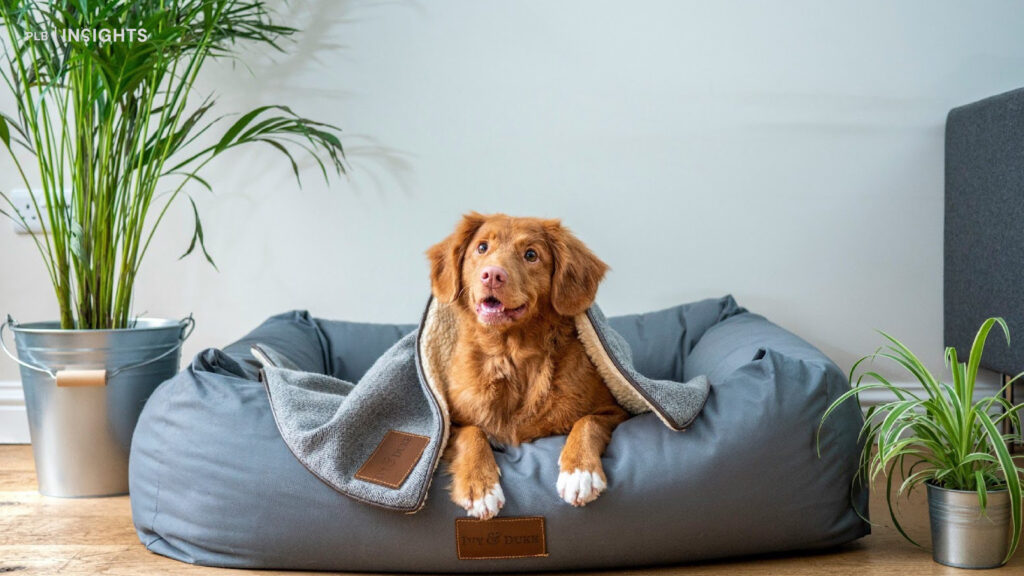
Pet ownership can fill your life with joy in the form of a furry companion. However, with the joy of pet ownership comes the responsibility of ensuring you maintain a harmonious living environment for yourself and your neighbours. In HDB flats and condominium developments, where community living is the norm, it is essential to be aware of and adhere to specific pet rules that ensure you maintain peace and harmony within your estate.
In this article, we will go over the different pet ownership policies specific to HDB flats and condos in Singapore, highlighting the dos and don’ts that every pet owner should know, allowing you to navigate the responsibilities that come with having a pet in these residential communities with ease.
HDB vs Condo Pet Ownership Guidelines
The Housing and Development Board (HDB) has specific regulations that are aimed at promoting responsible pet ownership while ensuring that community harmony is maintained. Historically, certain pets were banned from being kept in HDB flats. However, with recent changes made, residents are permitted to keep pets, particularly cats and dogs, under specific conditions.
While pet owners in HDB flats may face stricter rules and restrictions than those in private condos, pet policies in private condos can vary from one development to another. As such, it is essential to adhere to development-specific regulations and guidelines to ensure you and your pet can live comfortably and without potential issues.
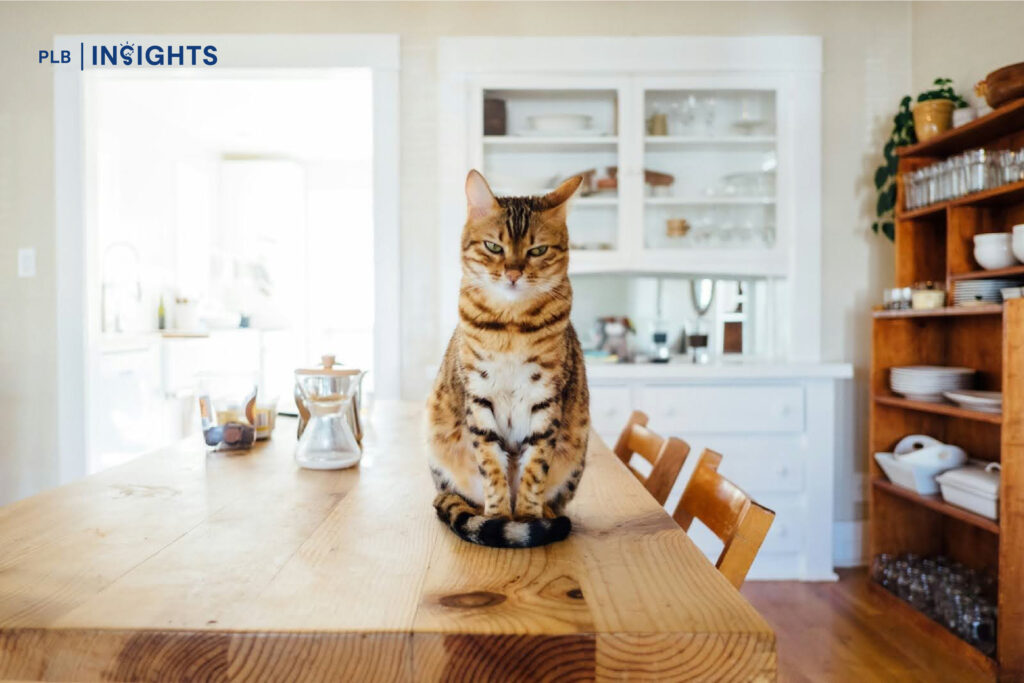
What Kind of Pets Are Allowed in HDB Flats?
HDB residents are permitted to house dogs, cats, small mammals such as rabbits, mice, hamsters, birds and gerbils, and reptiles and amphibians such as specific species of frogs and turtles. Moreover, there are 62 approved dog breeds HDB residents can choose from as pets.
These mostly include smaller, non-aggressive breeds, and pet owners can choose to also adopt a crossbreed or mixed breed from the list provided, ensuring that the dog is not larger than a shoulder height of 55 cm. These dogs are typically referred to as Singapore Special.
In the instance that these guidelines for dog breeds are not followed, residents can be fined up to $4,000.
And after a 34-year ban, residents are now allowed to keep up to two cats as pets following certain guidelines and conditions in HDB flats, and up to 3 cats in private condos, effective 1 September 2024. Those with more than the stipulated limits will be allowed to keep all existing pet cats if they licence their microchipped pet cats within the two-year transition period from 1 September 2024 to 31 August 2026.
It is key to note that HDB residents are only allowed to keep 1 dog and 2 cats as pets at any given time. Failure to comply with the limits stipulated by HDB can also result in a fine of up to $4,000.
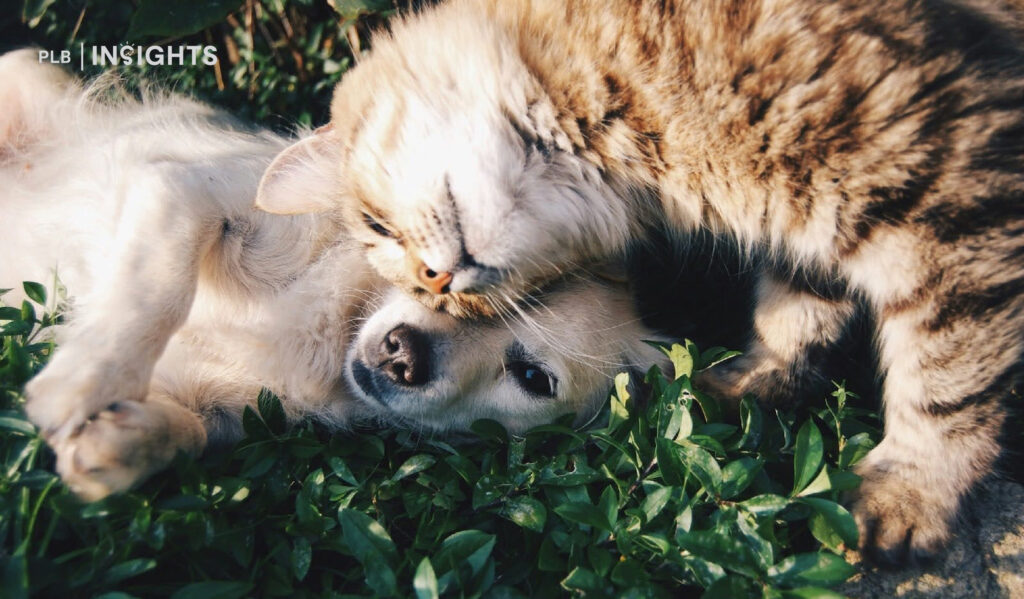
What Types of Pets Are Allowed in Condos?
Most condos allow residents to keep small pets such as dogs, cats, hamsters, rabbits, and fish – depending on the development, residents can keep pets that are on the list of approved pets for sale in Singapore. These include dogs, cats, rabbits, guinea pigs, mice, chinchillas and gerbils. It is essential to note that you may be required to seek approval from the MCST if your private residence has specific pet rules.
Private property owners are allowed to keep a total of 3 pet dogs, cats, or a combination of the two. For instance, if you have one dog, you are also allowed to keep 2 cats, or vice versa. If you have 3 cats, you are not permitted to also have a pet dog.
If pet owners wish to keep more than 3 cats or dogs – including dogs that are not of the Specified dog breed – they have to seek approval from the Animal and Veterinary Service (AVS), and ensure that the pets are licensed and microchipped, healthy and trained, have all of the required documentation, and that pet owners have ample room in their unit to house the pets.
However, pet owners must keep in mind that the approval is given on a case-by-case basis, and licensees must agree to remove any of the cats or dogs to reduce the total number to three if there is any feedback of noise, disturbance and nuisance.
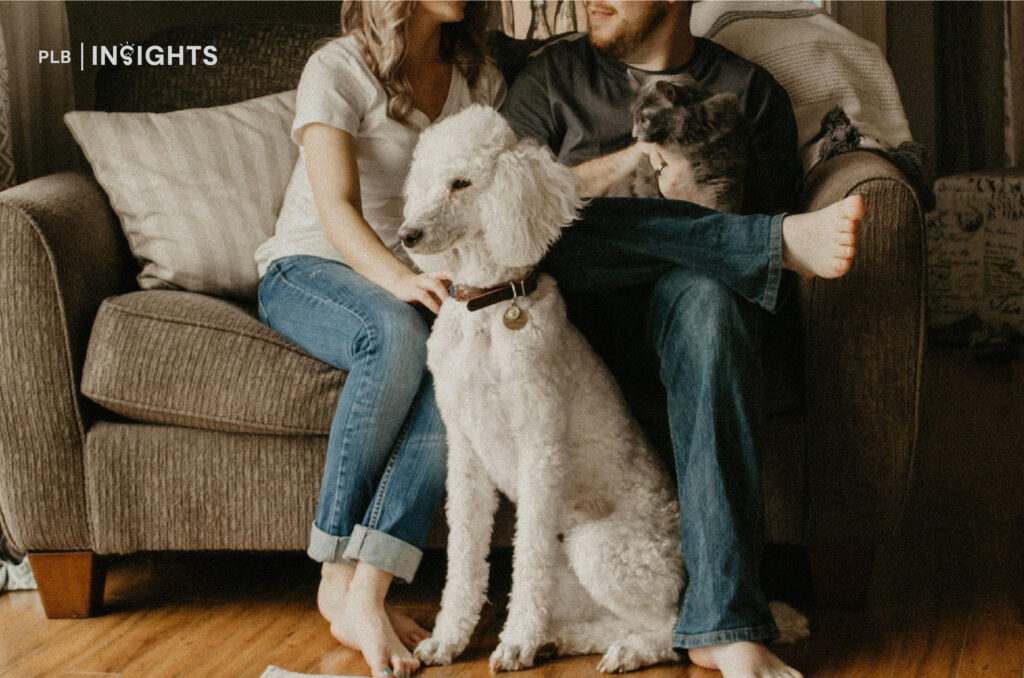
Key Requirements & Challenges of Pet Ownership
Registration and Licensing Requirements
All first-time pet owners are required to complete a pet ownership course before applying for a licence, as of September 2024. Moreover, all cats and dogs kept as pets in Singapore must be licensed through the Pet Animal Licensing System (PALS) online to ensure they can be traced in the event of disease outbreaks for everyone’s safety. Pet owners are required to renew their pet’s licence before they expire, and inform the Animal and Veterinary Service (AVS) by NParks about any changes of licensees, addresses of where the pets are kept, and the death of any pets.
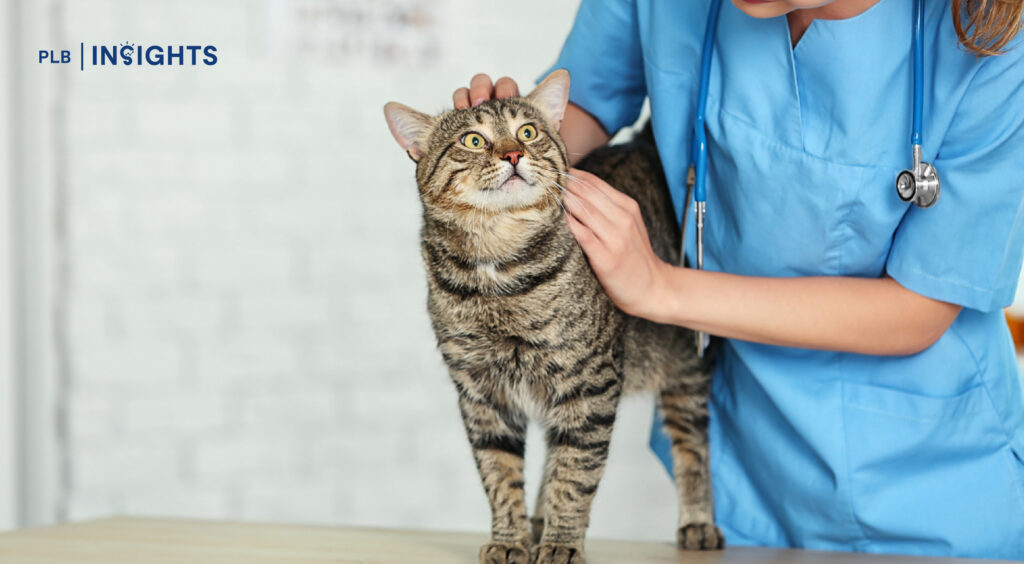
Approved Adoption Centres and Shelters
Pet shops in Singapore must be licensed under a retail group pet licence through the Pet Animal Licensing System (PALS) before they are sold. Moreover, any dogs or cats kept in a farm for breeding purposes must also be licensed under a breeding group pet licence through PALS.
Pet owners are free to adopt their pets from approved shelters and adoption centres aside from pet shops in Singapore too. AVS currently has a list of rehoming partners that have cats and dogs up for adoption.
List of AVS’s partners:
- Mercylight Animal Rescue and Sanctuary
- Noah’s Ark CARES
- Oasis Second Chance Animal Shelter
- Project Luni
- Purely Adoptions
- SOSD Singapore
- Society for the Prevention of Cruelty to Animals
- Voices For Animals
- Action for Singapore Dog
- Animal Lovers League
- Cat Welfare Society
- Causes for Animals (Singapore)
- Chained Dog Awareness Singapore
- Exclusively Mongrels
Specified Dog Breeds
Specified dog breeds in Singapore refer to dogs that are considered to be more dangerous or aggressive, and are listed under the Animals and Birds Rules 2024 as “Specified Dogs”. These dog breeds, if owned, require extra training, and additional measures like muzzling in public to prevent potential attacks.
Private property owners are allowed to keep one specified dog, however, HDB residents are not permitted to keep any dogs found in this list.
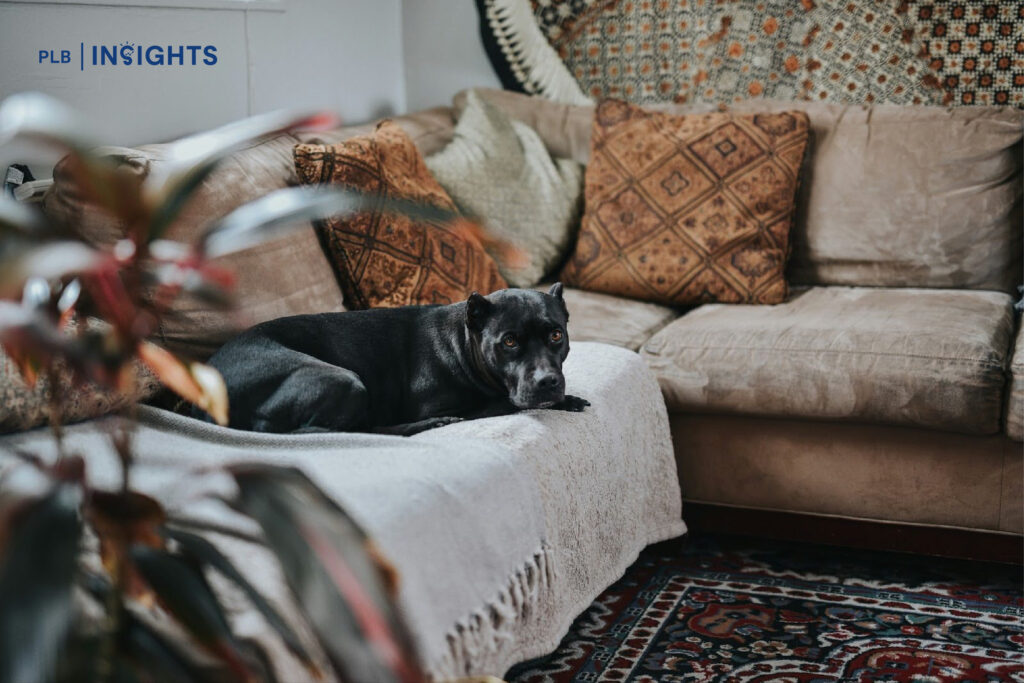
Tips and Tricks: How To Navigate Pet Ownership Responsibly and Effectively
Navigating pet ownership in Singapore requires a blend of responsibility to follow guidelines and provide the best care for your furry companions, and consideration for your neighbours and community. This way, not only do you ensure the well-being and safety of your pets, but also foster a comfortable and harmonious living environment for your community.
Rules and Regulations
Before bringing a pet home, ensure you are familiar with all of the pet guidelines for your HDB or condo. Having a clear understanding of these guidelines will help you avoid conflicts with neighbours and issues with the management. Moreover, keep all of your pet’s documents including registration, vaccination records, and any permits you have updated. This will allow you to quickly address and resolve any concerns or inquiries that may arise.

Pet Safety & Well-Being
Keeping your pets safe is also a must. You can do this by making sure your home is safe for your pet by using pet gates if necessary, removing hazardous items or storing them in spaces pets cannot access, and securing any open spaces like windows and balconies to ensure your pet cannot walk or jump out. Additionally, schedule routine check-ups to keep your pet healthy, and to allow them to receive vaccinations and preventative care on time.
Along with this, taking your pet for daily walks is essential for their exercise and socialisation with other pets and residents. Engaging in community groups or events dedicated to pets and their owners provides opportunities to connect, share experiences, and learn from one another. This not only benefits the well-being of your pets but also helps foster a strong sense of community, offering valuable resources and support for all.
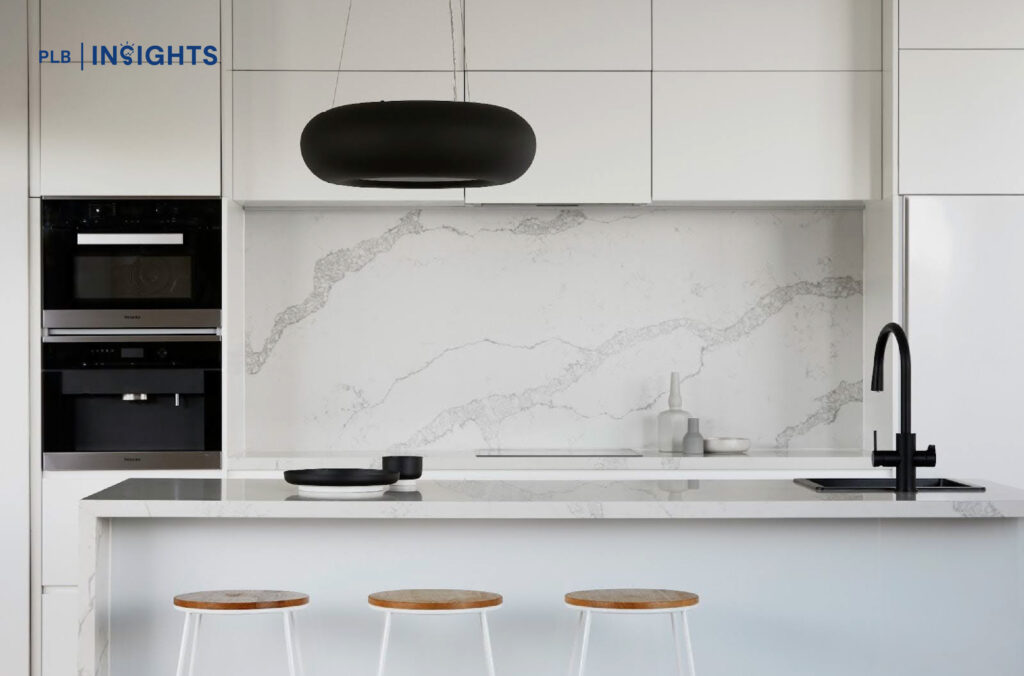
Good Hygiene
This ties in with maintaining the overall health and well-being of your pet, but it is important to keep your pet well-groomed and clean to reduce any shedding and odours. Regular grooming can also help you monitor your pet’s health. Additionally, whether you take your pet on walks or are at home, immediately clean up after them to maintain the cleanliness of common spaces and public areas. This can be made a lot easier by toilet training your pet.
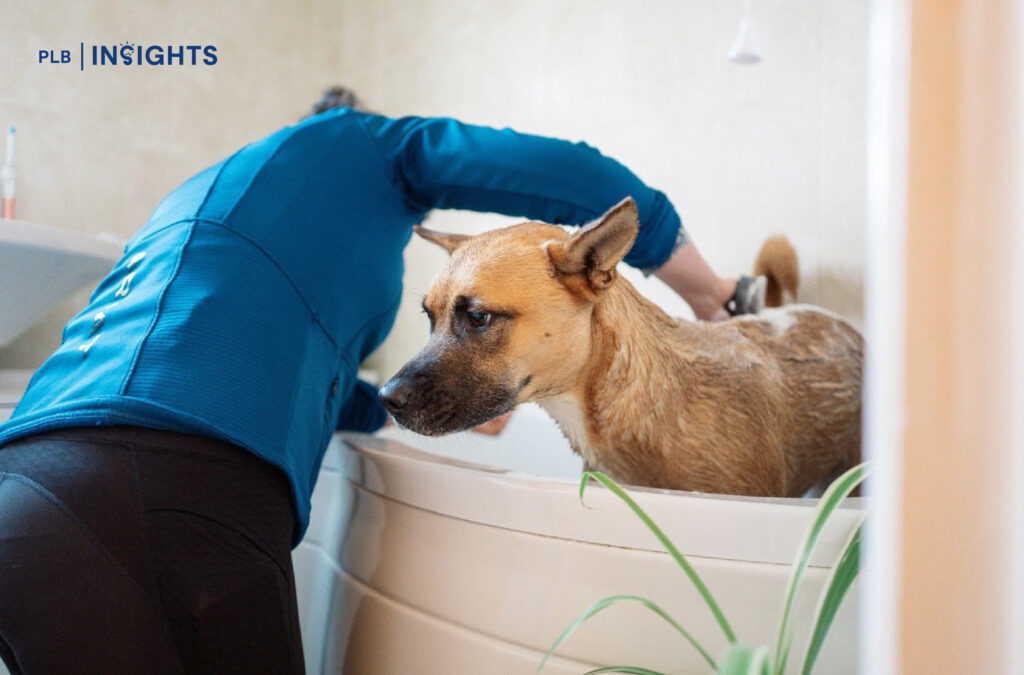
Positive Relationships With Neighbours
Maintaining positive relationships with your neighbours can make way for you to openly communicate with them and address any concerns early on. Keeping your pet on a leash in common areas, training them for good behaviour, and being attentive to any signs of discomfort or fear from neighbours regarding your pet can further ensure that your relationship with neighbours remains positive.
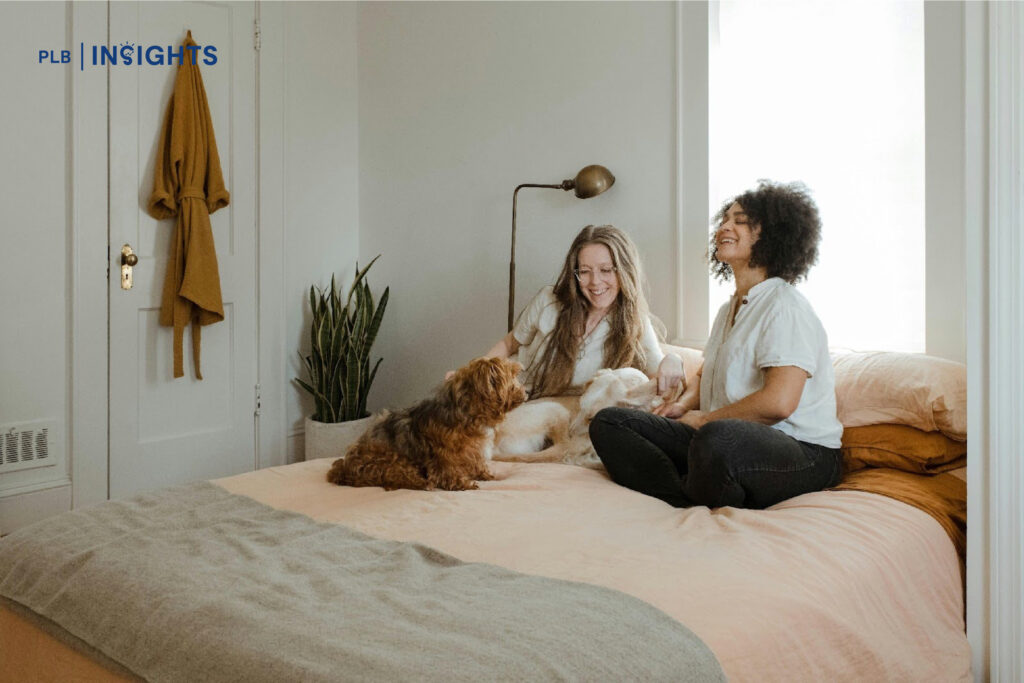
Closing Thoughts
Pet ownership can be a rewarding experience, especially when approached with responsibility and care. By understanding and adhering to the specific regulations, pet owners can create a balanced, healthy and harmonious living environment for themselves, their pets, and their neighbours. Moreover, with proper training, hygiene practices and open communication, you can enjoy the companionship of your furry friends while positively contributing to your community.
Get In Touch With Us
Are you in search of the ideal pet-friendly home? Feel free to reach out to us here with your questions and concerns. Our team of adept consultants will be more than happy to assist you on your property journey, every step of the way.
Until next time.







